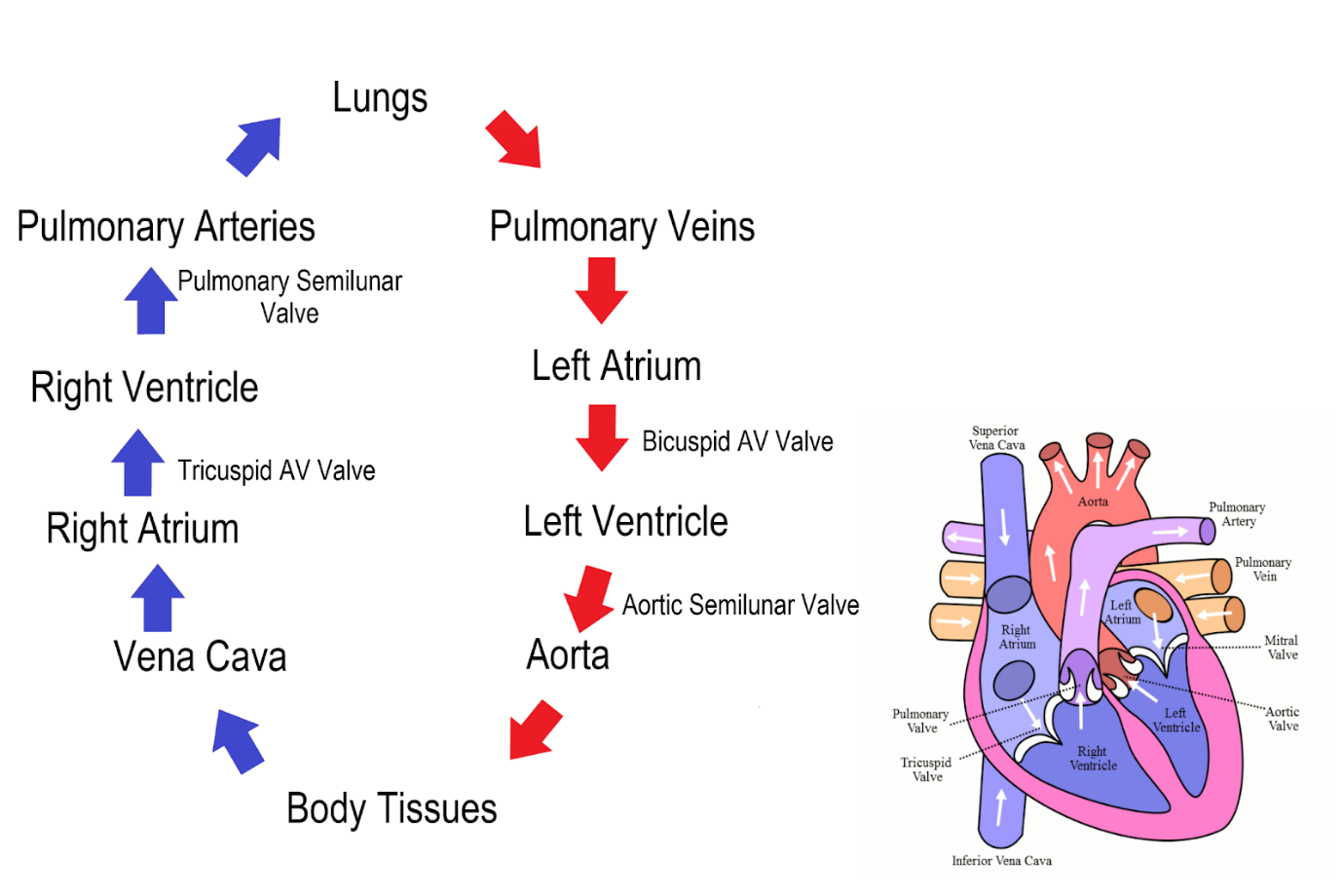A client was recently diagnosed with a heart murmur and is asking the nurse for more information. The nurse will educate the client that a heart murmur:
indicates turbulent blood flow through a valve.
is an extra sound due to blood entering an inflexible chamber.
means that there is some inflammation around the heart.
is a high-pitched sound due to a narrow valve.
The Correct Answer is A
A. Indicates turbulent blood flow through a valve:
This statement is correct. A heart murmur is an abnormal sound during the heartbeat cycle, often indicating turbulent blood flow through a valve. Murmurs can result from various factors such as valve disorders, structural abnormalities, or other heart conditions.
B. Is an extra sound due to blood entering an inflexible chamber:
This statement is not accurate. Heart murmurs are primarily associated with turbulent blood flow rather than an extra sound related to an inflexible chamber.
C. Means that there is some inflammation around the heart:
This statement is incorrect. Heart murmurs are not specifically related to inflammation around the heart. They are primarily caused by issues with blood flow through the heart valves.
D. Is a high-pitched sound due to a narrow valve:
This statement is a bit oversimplified. While murmurs can sometimes be associated with narrow valves (stenosis), they can also result from various other valve abnormalities or conditions, and not all murmurs are high-pitched. The pitch and characteristics of a murmur can provide clues about its cause, but they are not the sole indicators.
Nursing Test Bank
Naxlex Comprehensive Predictor Exams
Related Questions
Correct Answer is A
Explanation
A. When part of the lung is obstructed or collapsed: This statement is accurate. Unequal chest expansion can occur when part of the lung is obstructed or collapsed, preventing the affected area from expanding normally during inhalation.
B. When bulging of the intercostal spaces is present: This statement is not accurate. Unequal chest expansion typically refers to decreased expansion on one side, not bulging of intercostal spaces.
C. In an obese patient: This statement is not accurate. Obesity can affect breathing patterns and lung function, but it is not the primary cause of unequal chest expansion.
D. When accessory muscles are used to augment respiratory effort: This statement is not accurate. The use of accessory muscles to augment respiratory effort can be a sign of respiratory distress, but it doesn't directly cause unequal chest expansion. Unequal expansion is more indicative of specific lung conditions or issues with lung mechanics.
Correct Answer is C
Explanation
In this sequence:
Vena cava brings deoxygenated blood from the body into the right atrium.
Blood flows from the right atrium to the right ventricle through the tricuspid valve.
The right ventricle pumps blood into the pulmonary artery to the lungs.
In the lungs, blood is oxygenated and returns to the heart via the pulmonary veins into the left atrium.
From the left atrium, blood moves to the left ventricle through the bicuspid (mitral) valve.
The left ventricle then pumps oxygenated blood into the body through the aorta.
This sequence represents the systemic and pulmonary circulation of the heart.

Whether you are a student looking to ace your exams or a practicing nurse seeking to enhance your expertise , our nursing education contents will empower you with the confidence and competence to make a difference in the lives of patients and become a respected leader in the healthcare field.
Visit Naxlex, invest in your future and unlock endless possibilities with our unparalleled nursing education contents today
Report Wrong Answer on the Current Question
Do you disagree with the answer? If yes, what is your expected answer? Explain.
Kindly be descriptive with the issue you are facing.
